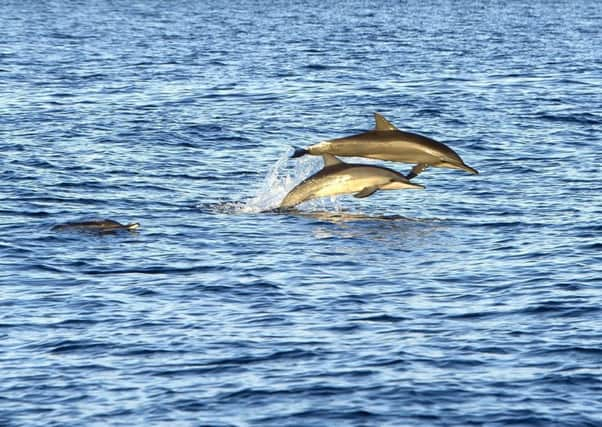Whales and dolphins face '˜perfect storm' of plastic and pollution


In the wake of BBC’s Blue Planet 2 highlighting global damage in our oceans, a new report warns that whales and dolphins around Britain are facing a greater number of threats today than at any point in history and many thousands are dying as a result.
ORCA, a Portsmouth-based charity that campaigns for marine mammals, has just issued The State
Advertisement
Hide AdAdvertisement
Hide Adof European Cetaceans 2017 report, and says government action is needed urgently. The report highlights the sheer scale of the challenges that whales, dolphins and porpoises have simply to survive, and if action isn’t taken, some of our most beloved populations will be at serious risk of extinction.
The charity highlights that the breadth and scale of these threats exceeds even that seen at the peak of global whaling, with the diverse and serious threats they face having a catastrophic impact on some species.
The UK’s only pod of killer whales is facing extinction because of toxic pollution. With only eight members remaining and no reports of a calf being born for over 20 years, the pod may be gone in a matter of decades, despite the toxins that are killing them having been banned for almost 40 years.
The report also examines the suffering faced by whales and dolphins when they become entangled in fishing lines. Animals who fall victim to ‘bycatch’, as it is known, drown slowly, with some suffering for months through dragging the heavy gear in which they are snagged across the oceans before they finally succumb.
Advertisement
Hide AdAdvertisement
Hide AdSally Hamilton, ORCA Director, said: ‘The devastation being caused on a daily basis by the manifestation of these threats is terrible, and often results in some of the cruellest suffering imaginable. Worst of all, so many of these deaths could be prevented if we gave our marine life the protection they need.’
ORCA have recommended a series of steps that could help to limit some of these threats:
A tax to arrest the addiction we have to the single use plastics that are destroying our environment.
An enforced obligation on every fishing vessel to report any whale, dolphin or porpoise caught in its nets – not to punish them, but to properly assess the scale of the problem
Advertisement
Hide AdAdvertisement
Hide AdAction by government and industry to stop the millions of tonnes of toxic material still threatening the environment from causing more damage.
More support and more investment in marine conservation efforts to build a clearer picture of the damage we are doing to our whales and dolphins.
ORCA patron and BBC wildlife presenter Chris Packham added: ‘It’s terrifying to think that whales and dolphins, despite decades of conservation work, are at greater risk today than ever before, and the thousands killed around the UK each year are often subjected to the cruellest of fates. Reports like ORCA’s The State of European Cetaceans 2017 help to show just how much work there is still left to do to safeguard these wonderful animals for future generations to enjoy.’
One positive finding from the report is that a ground-breaking analysis of ORCA’s citizen science research, conducted by volunteers over a period of eleven years, was proven to support the traditional research used to dictate UK & European marine protection policy.
Advertisement
Hide AdAdvertisement
Hide AdThis landmark finding demonstrates for the first time that citizen science, which is significantly more cost effective than traditional research, could be the key to a more sustainable way of protecting marine life in the longer term.
Read the full report here.